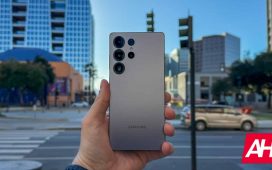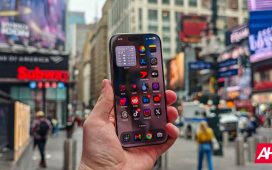More than a decade on from his stint in Silicon Valley, Ron Johnson is still quick to recall his time at Apple and name-drop his famed mentor.
“I have learned from many, but the most powerful lessons I learned came from working at Apple with Steve Jobs,” he said last year. “He taught me that when you deliver the highest quality you can imagine, you will have a great business forever.”
Plucked in 2000 by the Apple co-founder after a successful run at discount retailer Target, Johnson is widely credited with developing the concept of the Apple Store, the gadget maker’s hyper-successful bricks-and-mortar retail gambit.
But Johnson’s latest attempt to recapture his previous retailing magic has descended into a debacle that is emblematic of the wider boom and bust in special purpose acquisition companies.
Enjoy Technology was valued at $1.1bn when it went public through a Spac in October, luring in investors with a vision of “commerce at home”, which offered busy consumers the chance to have an Apple Store-like experience in their living room.
Now, just eight months after it shares began trading, that lofty valuation has been all but wiped out. Instead of becoming the next Apple or even Airbnb or Uber — other disrupters that Johnson singled out as inspirations — Enjoy hastily filed for Chapter 11 bankruptcy on Thursday.
Johnson had once boasted that “Enjoy’s mobile store can do anything you can do in a store but better”. Now, the retailer is down to less than $1mn in cash and has requested the US federal court overseeing the case to approve a $55mn loan so it can meet payroll this week for its 1,700 employees.

For the former Apple executive, the collapse into bankruptcy has scotched hopes that Enjoy would offer redemption after a disastrous stint at JCPenney, where Johnson was installed in 2011 by activist investor Bill Ackman to reinvent the mid-America department store.
Enjoy’s breakneck crash from a public listing to bankruptcy is not unique. The retailer has joined a growing list of companies that have listed through Spacs and are now teetering on the edge of insolvency. Last month carmaker Electric Last Mile Solutions also filed for bankruptcy, just a year after going public at a $1.4bn valuation.
The market for Spacs boomed in 2020 and 2021, as legions of day-traders and other ordinary investors began trying their luck on more speculative companies. These “blank cheque” vehicles, which raise money through an initial public offering and use the money to hunt for a private business with which to merge, offered an attractive alternative for cash-burning start-ups that would struggle to list through the more rigorous traditional IPO process.
But few have managed to live up to the hype from their boldfaced backers. Less than 10 per cent of companies that have listed through Spacs since January 2020 are trading at or above their IPO price, according to data from Spac Research.
And with funding for speculative early-stage businesses rapidly drying up, Enjoy is unlikely to be the last of the recent Spac wave to file for bankruptcy.
Blue-chip backers
Ordinary investors in Enjoy shares, who are now facing near wipeouts, could be forgiven for having taken comfort in the company’s illustrious backers.
Since Johnson founded the retailer in 2014, Enjoy raised $400mn in venture capital, according to PitchBook data, from Silicon Valley stalwarts such as Andreessen Horowitz and Kleiner Perkins.
Marquee Raine Acquisition Corporation — the Spac vehicle that took the company public — was also led by two blue-chip investors.
Joe Ricketts, whose family owns the Chicago Cubs, and Raine Group, the merchant bank, raised $375mn in December 2020, just as the Spac market was heating up. Raine’s clients include the likes of SoftBank and it recently managed the auction of the Chelsea Football Club in which the Ricketts were bidders.
In March 2021, Marquee Raine and Enjoy announced a deal that valued the company at $1.1bn. The transaction was set to raise $450mn of fresh cash, including the proceeds raised from the Spac IPO, alongside $80mn from institutional investors.
While Marquee Raine had initially told investors that it would probably merge with a company in the sports or entertainment industry, its backers argued that the opportunity was too compelling to pass up.
“We believe Enjoy is one of the most innovative and transformative consumer and technology companies we have seen,” said Raine’s Brett Varsov at the time of the merger announcement. “Ron has built a terrific team, the business continues to grow and perform incredibly well, and the future opportunity is immense.”
The deal’s investor presentation trumpeted Enjoy’s grand ambitions. While the company had generated just $60mn of revenue in 2020, Johnson projected its takings would exceed $1bn in 2025, accompanied by a 30 per cent operating profit margin.
Enjoy had 2,000 employees and 700 mobile stores — essentially vans that were deployed to customer homes after a gadget, typically an iPhone, was ordered. While its key partners were large telecommunications companies — AT&T in the US, BT in the UK and Rogers Communications in Canada — Enjoy said it would eventually enter other end markets with a collective size of more than $1tn, including luxury goods, fitness and cars.
In Johnson’s telling, Enjoy’s powerful back-end technology was the secret to its success. “Powered by machine learning and analytics, Enjoy’s algorithm and proprietary technology optimise the customer experience in real time to track inventory and improve efficiency,” he explained last year.
While the slides said that Enjoy was “in a category of one”, Marquee Raine also touted comparable companies such as Uber, Peloton and Carvana to support its $1bn valuation.
Perfect storm
Yet as the merger approached its closing date in the autumn of 2021, the giddy enthusiasm for Spacs began to fizzle.
While the overall stock market remained strong, Spac investors were slowly becoming more discriminating. Redemption rates — the amount of money pulled by Spac shareholders when the time comes to vote on a transaction — had crept up to about 60 per cent by the time Enjoy and Marquee Raine completed the deal.
Of the $375mn raised by the Marquee Raine vehicle, less than $60mn remained after Spac shareholders had exercised their right for refunds.
Marquee Raine had agreed to a so-called “backstop” arrangement, where the Ricketts family along with Johnson agreed to plug some of the cash hole from the redemptions. According to securities filings, the pair stumped up $56mn of their own money to help close the deal.
Enjoy’s first earnings call, in November, offered a hint of what would become the company’s downfall.
“Unfortunately, the supply of key smartphones has been significantly lower than planned during the fourth quarter and will negatively impact our fourth-quarter financial results,” explained Johnson, as it reported quarterly revenue of less than $20mn and an operating loss of more than $40mn.
Some doubted whether the underlying economics of the business could ever work.
“Enjoy takes on two of the most costly aspects of customer engagement — white-glove last-mile delivery and customer consultation — and provides them in a manner that is free to the customer,” said Terry Esper, a professor of logistics at The Ohio State University. “It seems this is likely just too costly to offer at scale.”
Enjoy missed its 2021 revenue target of $109mn by 25 per cent, just months after reiterating that it still believed it was achievable. Results in early 2022 only deteriorated. By the end of March, the company’s cash position had dwindled to just $37mn, and at the time of the bankruptcy filing it was essentially zero. As its business unravelled, Enjoy lost two successive chief financial officers, while adding two board members who specialise in financially distressed situations.
In court papers, Enjoy said it ran into a perfect storm of economic and market headwinds: high redemptions by Spac investors limited its available cash balance and then the supply chain crisis and labour shortages prevented it from reaching its sales targets.
Enjoy is now poised to be taken over by Asurion — a provider of electronic device insurance and repair services headquartered far from Silicon Valley in Nashville, Tennessee — after it has provided a $55mn loan to help keep the lights on at the company during its bankruptcy.
As part of the bankruptcy, a $10mn loan Johnson personally provided to Enjoy earlier this year is set to be stripped of its security against the company’s assets. It marks a crushing end for a retail maven who was once famous for reinventing the American shopping experience.
Johnson, Ricketts and Raine declined to comment.









